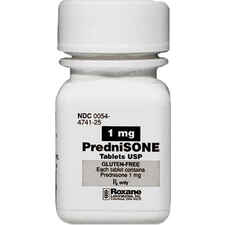Lymphoma (Lymphosarcoma) Treatment for Dogs and Cats
Doctor of Veterinary Medicine

While efforts are made to answer all questions as quickly as possible, if an immediate answer is required or if your pet is in need of urgent or emergency care, contact your pet's veterinarian immediately.
Doctor of Veterinary Medicine

You will receive an answer from Dr. Lindsay and our vet/tech team as soon as possible, usually the same day.
All answers are provided for informational or educational purposes only, and are intended to be a supplement to, and not a substitute for, the expertise and professional judgment of your pet's veterinarian.
It may be necessary to consult your pet's veterinarian regarding the applicability of any opinions or recommendations with respect to your pet's symptoms or medical condition.
CloseDoctor of Veterinary Medicine

An error has occurred, please reload the page and try again.
CloseWhile efforts are made to answer all questions as quickly as possible, if an immediate answer is required or if your pet is in need of urgent or emergency care, contact your pet's veterinarian immediately.
There is no answer related to your question
Treatment options for pets with lymphoma
The treatment of choice by most veterinarians for pets with lymphoma is chemotherapy. Rather than relying on surgery or one medical agent, most protocols will use a combination of different drugs to achieve the best possible results. Depending on the tumor location and the advanced nature of many cases, many drugs, including L-aspariginase, Vincristine, Prednisone, Cyclophosphamide, and Doxorubricin may be used in sequence. Many pet owners who cannot afford or choose not to use full chemotherapeutic protocols, will often receive oral Prednisone only for their pets. While initial clinical results can often be dramatic, most pets treated in such a way will typically only live 1-2 months. Adjunctive holistic treatments including classical homeopathy and nutritional supplements such as 4life Transfer Factor, PolyMVA, K9 Immunity, and Maitake-DMG may increase survival times as well.
Treating pain associated with lymphoma (lymphosarcoma)
As with many cancers, dogs and cats with lymphoma will undoubtedly be in chronic pain. Anticipating and utilizing appropriate pain management is important not only for your pet's comfort, but also in reducing stress and enhancing the response to primary chemotherapeutic drugs. Among the many drugs used are non-steroidal anti-inflammatory drugs (NSAIDs), opiate medications such as Buprenex and morphine, and localized pain patches when needed.
Newer treatment options for pets with lymphoma
Over the years, various institutions have used monoclonal antibodies, as well bone marrow transplantation for canine patients. It is best to check with local veterinary school institutions or teaching hospitals on whether there are any clinical trials for newer drugs in treating lymphoma in dogs or cats. New treatment options, including an oral tablet called Laverdia-CA1, have had promising results for dogs with lymphoma. You'll need to ask your veterinarian about Laverdia.
Prognosis for pets with lymphoma (lymphosarcoma)
Prognosis for lymphoma is less favorable in cats than dogs, and will depend on organ and extent of involvement at the time of presentation. The earlier the diagnosis is made, the better the prognosis. Without treatment, most dogs or cats will die within 1-2 months. Cats with mediastinal (chest) lymphoma have a much poorer prognosis since many of these cats also have feline leukemia. Kidney and central nervous system lymphoma also seem to have a less favorable prognosis. The vast majority of cats with multicentric or intestinal lymphoma will live 6-9 months with treatment. Up to one third of cats may live longer than a year. A higher percentage of dogs will respond to chemotherapy, with one quarter of dogs surviving for more than two years.






















